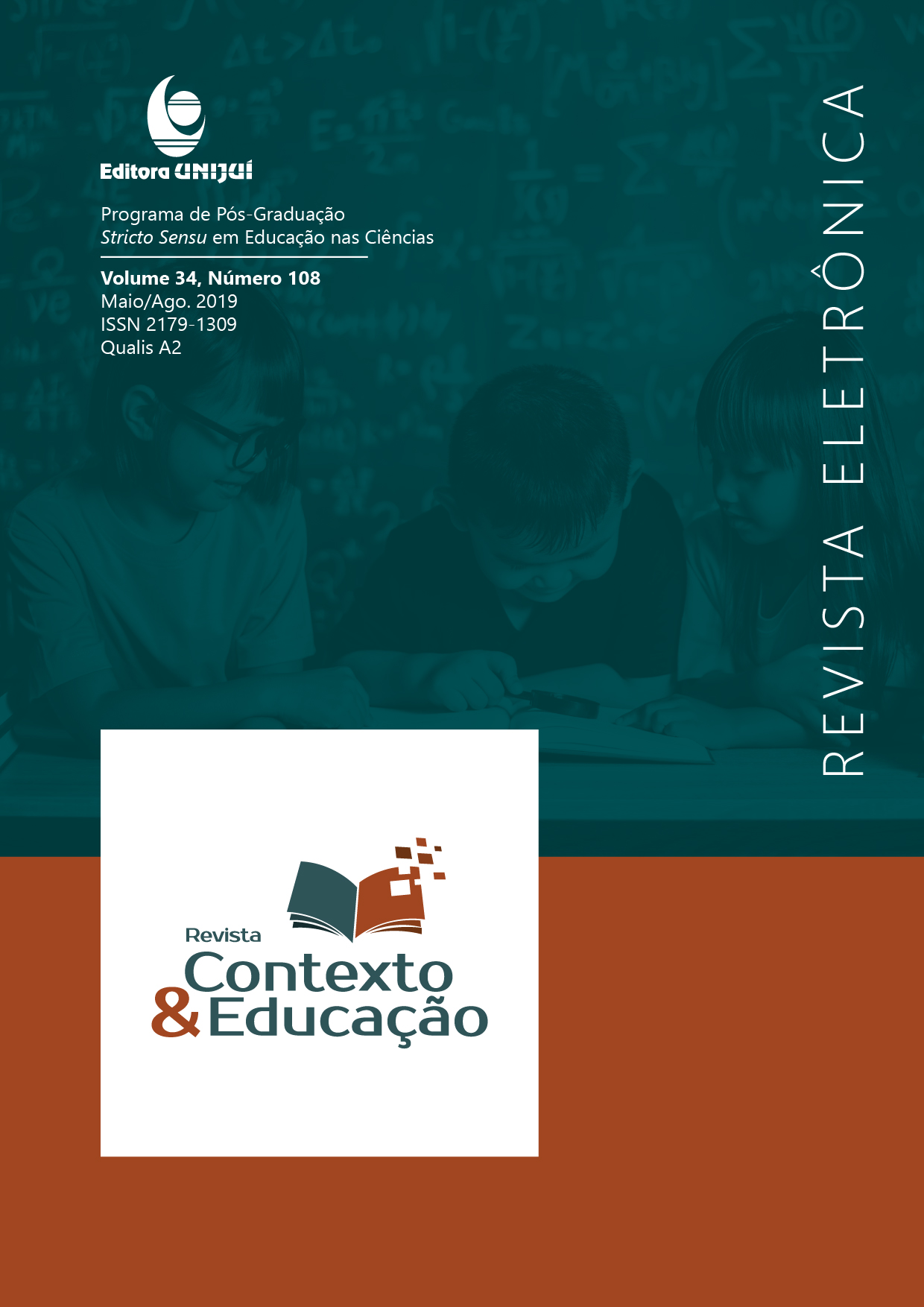LITERACIA PARA A SAÚDE EM ALUNOS DO ENSINO SECUNDÁRIO: RELAÇÃO COM A PARTICIPAÇÃO NA SAÚDE ESCOLAR
DOI:
https://doi.org/10.21527/2179-1309.2019.108.177-188Keywords:
Saúde Pública; Saúde Escolar; Estudantes; Ensino fundamental e médio; Diagnóstico de situação de saúde.Abstract
Objetivo: i) Caraterizar em termos sociodemográficos os alunos da amostra; ii) Analisar a relação entre o nível de Literacia para a Saúde (LS) e a participação dos alunos nas atividades de Saúde Escolar (SE). Materiais e métodos: Estudo descritivo-correlacional, transversal, de abordagem quantitativa, no qual participaram 499 alunos, do ensino secundário público. Foi aplicado um questionário de autopreenchimento, que incluía a escala HLS-EU-PT destinada a avaliar o nível de LS. No tratamento de dados utilizamos o SPSS. Resultados: A maioria dos alunos era do sexo feminino (58.3%) e enquadrava-se no grupo etário dos 16 aos 17 anos (64,5%). Participaram nas atividades de SE 39,1% da amostra, dos quais o maior grupo no âmbito da educação sexual (23%) e alimentação saudável (12,6%). O maior grupo enquadrou-se na LS Suficiente (39,1%). A categoria de LS designada Alfabetização limitada para a saúde atingiu mais de 50% em todos os domínios, exceto, no domínio Promoção da Saúde. O índice de LS Geral não difere significativamente quanto à participação nos programas de SE. Conclusão: Os alunos da amostra apresentam um baixo nível de LS, inferior ao dos participantes noutros estudos. A participação dos alunos da amostra nos programas de SE é baixa, sendo que estas atividades parecem não estar relacionadas com o nível de LS. A equipa de SE deverá estender as suas atividades a mais alunos desta população, procurando aumentar a sua eficácia para elevar o nível de LS.
Downloads
Published
How to Cite
Issue
Section
License
By publishing in Revista Contexto & Educação, authors agree to the following terms:
All works are published under the Creative Commons Attribution 4.0 International License (CC BY 4.0), which allows:
Sharing — to copy and redistribute the material in any medium or format;
Adaptation — to remix, transform, and build upon the material for any purpose, even commercially.
These permissions are irrevocable, provided that the following terms are respected:
Attribution — authors must be properly credited, a link to the license must be provided, and any changes made must be indicated.
No additional restrictions — no legal or technological measures may be applied that legally restrict others from doing anything the license permits.
Notices:
The license does not apply to elements that are in the public domain or covered by legal exceptions.
The license does not grant all necessary rights for specific uses (e.g., image rights, privacy, or moral rights).
The journal is not responsible for the opinions expressed in the articles, which are the sole responsibility of the authors. The Editor, with the support of the Editorial Board, reserves the right to suggest or request modifications when necessary.
Only original scientific articles presenting research results of interest that have not been previously published or simultaneously submitted to another journal with the same purpose will be accepted.
Mentions of trademarks or specific products are intended solely for identification purposes and do not imply any promotional relationship by the authors or the journal.
License Agreement (for articles published from October 2025): Authors retain the copyright to their article and grant Revista Contexto & Educação the right of first publication.


